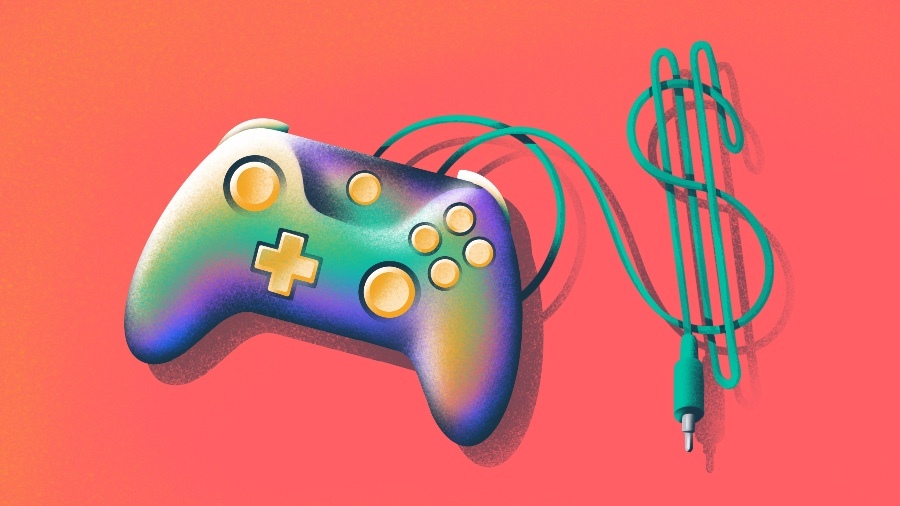A global pandemic, ripe market conditions, and more private capital availability have led to an increase in funding for gaming startups, and some notable exits over the past year or so.
Subscribe to the Crunchbase Daily
Venture-backed companies in the gaming space have raised nearly $5.9 billion in funding so far this year, already surpassing the total raised by gaming companies in 2020 and 2019, and approaching 2018’s levels. In all of 2018, venture-backed gaming companies raised about $6.1 billion, according to Crunchbase data.
The uptick in funding for gaming startups can be attributed to both social and pure business factors, according to Jed Strong, CEO of gaming-focused payments platform Tiv and a former employee focused on strategy at Xbox.
“From a social perspective, COVID truly changed everything,” Strong said. “The obvious being, and this is well established, that a record number of people of all ages are spending a record number of time and money on games. But from a social perspective there’s been a shift in perspective….about the gaming community and their attractiveness as a consumer.”
Previously, there was a stereotype that gamers lived in the basements of their parents’ houses and played games all day, Strong explained, but that’s changing. Now gaming is viewed more as a positive social event, or “virtual social behavior with significant network effects.”
VC investment in gaming has also changed, Strong noted, with a shift from investment in individual studios to companies that deal with gaming infrastructure and ancillary services. There’s also more of an understanding that the infrastructure of gaming is evolving, and that will create more opportunity on the enterprise and consumer side, he said.
The exit end game
The past year or so has seen several notable gaming companies go public, including Roblox through a direct listing, Unity Technologies and Playtika through IPOs, and esports companies like Skillz through SPACs.
“The market itself has been quite good,” said Josef Schuster, founder of IPOX Schuster LLC, a firm that provides financial services related to new listings. “A lot of these companies are older now, they’re typically between 8 and 12 years old, that’s probably a good time to think about ownership change, and a public market is a way to do that as well. And a way to create liquid equity for your employees to get out.”
Schuster pointed to Roblox as an example of an exit that was meant to provide liquidity for employees, as the company went public through a direct listing in which it didn’t raise any capital.
The pandemic, which left many people stuck at home looking for ways to entertain themselves, boosted the user bases of many gaming companies. Roblox, for example, noted in its S-1 registration document that it experienced “rapid” growth last year thanks to the pandemic. In its most recent earnings report, the company said people spent almost 10 billion hours playing Roblox in the first quarter of 2021.
But while many companies’ user numbers have gone up — not just in the United States, but globally — many of the recently-public companies appear to be overvalued, according to Schuster. Some, such as Playtika, have underperformed the market.
Gaming companies have reached sky-high valuations in the private markets, which has translated to the public markets. For example Epic Games, maker of Fortnite and other popular games, reached a nearly $29 billion valuation after raising billions from investors including Sony and private equity firm KKR.
M&A levels up, too
IPOs and direct listings aren’t the only notable exits gaming companies have seen in the past year. Most recently, Unity Technologies acquired peer-to-peer game streaming company Parsec for $320 million.
All told, there have been at least 26 acquisitions globally of venture-backed gaming companies so far in 2021, per Crunchbase data, and 100 when looking at both VC-backed and those that didn’t take VC funding.
According to Strong, the pace of acquisitions will likely continue, if not increase.
“ I just think you’re going to see these platforms particularly on the enterprise side start to integrate a variety of ancillary products, services, and offerings,” Strong said. “Any kind of software from rendering engines, payments systems, to everything in between. And I think what you’ll also see as well…, is additional M&A activity on the game platform, meaning Xbox or Sony, and on the publisher side.”
There’s also a greater understanding by the general public and the investment community that more of people’s lives are being spent in virtual environments, according to Strong.
“This has been growing for years but as we all know accelerated by the pandemic,” Strong said. “And there’s a universal recognition that there’s not going back and we’ll be investing our time investing in our identities in the virtual world.”
Illustration: Dom Guzman

Stay up to date with recent funding rounds, acquisitions, and more with the Crunchbase Daily.



![Illustration of a guy watering plants with a blocked hose - Global [Dom Guzman]](https://news.crunchbase.com/wp-content/uploads/quarterly-global-3-300x168.jpg)
67.1K Followers